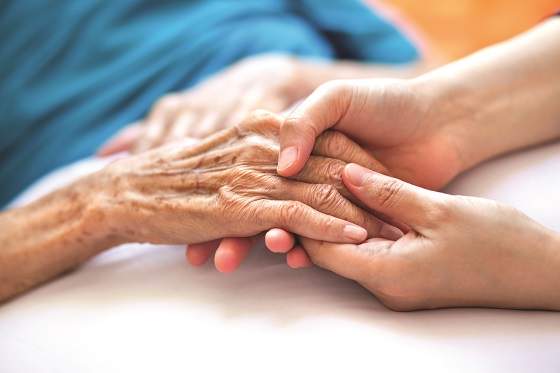As our country’s population continues to age, elder neglect is becoming a growing concern among families and health and human rights activists. Though instances of it are on the rise, it’s an issue that often goes underreported. This is simply because victims are typically frail, ill or dealing with conditions, like dementia.
To protect an elderly loved one from neglect, it’s vital to understand what it is and to recognize common signs and symptoms.
What is Elder Neglect?
Elder neglect falls under the category of elder abuse as defined by the National Center on Elder Abuse. It occurs when a caregiver refuses or fails to fulfill their obligations or duties to an elderly person. For instance, a caregiver might not give an individual the food, water or medicine they need to stay healthy. In a medical setting, such as a nursing home, it includes:
- Not administering medications when needed or giving incorrect doses
- Giving conflicting medications or those with excessive side effects
- Not moving those with mobility issues as often as needed, increasing their risk for bed sores
- Not reporting signs of illness or infection
- Not properly caring for those with health problems like diabetes or dementia
- Excessively using physical or medical restraints
Who Commits Elder Neglect?
Neglect can come from many sources. Adult children are the most common perpetrators of elder neglect, followed by spouses and other family members. It can also happen at the hands of a professional caregiver in the home or at a medical facility or even by the senior themselves.
What are the Risk Factors?
According to the American Psychological Association, most victims of elder abuse are female, while most perpetrators are male. In addition, specific health conditions and other circumstances put certain groups at a higher risk for elder neglect. These include:
- Older Seniors: Those over 80 are more likely to suffer from elder abuse, according to a medical study from Northwestern University and Rush University researchers.
- More Vulnerable Seniors: Seniors with poor cognitive function and greater physical dependability are also at an increased risk for neglect. The more reliant a senior is on help with everyday tasks, the more susceptible they are to the potential for neglect or abuse.
- Isolated Seniors: Those living alone are at a higher risk for neglect and abuse, according to the National Council on Aging. This typically affects widows, seniors without family and other elderly adults aging alone.
What Are the Common Signs of Elder Neglect?
Elder neglect can be difficult to spot since seniors are more prone to falls, accidents, changes in behavior and memory issues. However, if you’re concerned, there are some red flags to be aware of, including:
- Poor Appearance and Hygiene: Your loved one may appear dirty, smell like urine or feces or wear unwashed or seasonally inappropriate clothing.
- A Sudden Physical Decline: Some indications include weight loss, missed medications or doctors appointments, regular illness or infection, skin issues or a sudden decline in energy. Other signs include bruises, lacerations, broken bones and other unexplained injuries.
- Personality Changes: Neglect can also be the source if your loved one appears confused or depressed for no reason, withdraws socially or has an unexpected negative reaction to physical touch.
- Dirty Living Conditions: If your loved one’s living conditions are unusually messy or dirty or not kept at an appropriate temperature for the season, neglect could be the cause.
What Should You Do if You Suspect Elder Neglect?
If you’re noticing potential signs of elder neglect, take detailed notes and photographs, so you can document the situation. This is particularly important if there are injuries of any kind. Also make sure you write down any different behaviors or issues you’ve noticed and the dates. If your loved one is in a medical facility, start checking in more regularly with in-person visits. Be on the lookout for any of the common signs and talk to your loved one about their experience there.
If you’re concerned a family member is the source of the neglect, address the topic calmly and directly with them. Don’t make accusations. Your family member will be more likely to open up and share what’s going on. If you have witnessed elder neglect or suspect it, then you need to report it. If you believe your loved one is in immediate danger, call 9-1-1.
For less urgent situations, you can call the National Center for Elder Abuse, Adult Protective Services, or the Long-Term Care Ombudsman in your local area. The Long-Term Care Ombudsman Program advocates for residents of nursing homes, assisted living facilities, board and care homes and similar adult care homes.
If you’re concerned about issues like elder neglect and would like to hire a professional, responsive and compassionate caregiver for your loved one, contact your local FirstLight® Home Care today. We can ensure your loved one is safe, happy and comfortable, wherever they call home.
